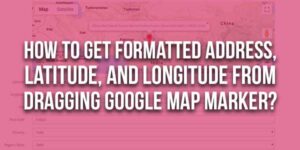
Table of Contents
How To Send A Mobile App Development Proposal To The Client After Getting A Lead
Landing a new lead for your mobile app development services is exciting, but the real challenge begins when you need to convert that interest into a signed contract. Your proposal serves as the bridge between initial contactand project commencement – get it right, and you’ll stand out from competitors while demonstrating your professionalism.
“A well-crafted proposal doesn’t just list services – it tells a story about how you’ll solve the client’s problems and deliver measurable results.”
Understanding The Client’s Needs Before Drafting
Jumping straight into writing your proposal without proper discovery often leads to generic documents that fail to resonate. Smart developers invest time in understanding the client’s vision first.
Conduct A Thorough Discovery Session
Schedule a 30-60 minute call or meeting to discuss:
- The core purpose of their mobile application
- Target audience demographics and behaviors
- Key features they consider essential
- Their technical preferences (platforms, integrations)
- Budget expectations and timeline constraints
Ask Probing Questions
Go beyond surface-level requirements by asking:
- “What problem will this app solve for your users?”
- “How do you envision this app generating revenue?”
- “What existing solutions have you tried, and why didn’t they work?”
Crafting The Perfect Mobile App Development Proposal Structure
A haphazard proposal suggests disorganized work habits. Follow this professional structure to instill confidence:
1. Cover Page That Makes An Impression
Include:
- Your company logo and branding
- Client’s company name
- Clear title (“Mobile App Development Proposal for [Client Name]”)
- Date of submission
2. Executive Summary That Captures Attention
In 3-5 concise paragraphs:
- Restate the client’s core objectives in your own words
- Briefly explain your understanding of their challenges
- Highlight why your approach differs from competitors
3. Detailed Scope Of Work
Break this into clear sections:
Technical Approach
Explain your development methodology (Agile, Waterfall, etc.) and why it suits their project.
Feature Breakdown
List must-have features with brief descriptions, separating core features from nice-to-have additions.
Platform Specifications
Detail whether you’re developing for iOS, Android, or cross-platform, including version support.
Presenting Your Pricing Strategy
Clients scrutinize pricing more than any other section. Present costs in a way that demonstrates value.
Transparent Pricing Models
Offer clear options:
- Fixed Price: Best for projects with well-defined requirements
- Time & Materials: Flexible for evolving projects
- Milestone-Based: Payments tied to deliverable completion
Justifying Your Costs
Instead of just listing numbers:
- Break down costs by development phase
- Compare your rates to industry averages
- Highlight cost-saving measures you’re implementing
“Clients don’t buy the cheapest option – they buy the solution that offers the clearest path to success with minimal risk.”

Showcasing Your Credentials Effectively
Your proposal must build trust before the client ever visits your office or meets your team.
Portfolio Presentation
Include:
- 3-5 relevant case studies (similar industries/app types)
- Screenshots or demo videos where possible
- Testimonials highlighting your strengths
Team Qualifications
Briefly introduce:
- Key team members who will work on the project
- Their relevant experience and certifications
- Your company’s overall track record
Delivery And Follow-Up Strategies
How you present the proposal impacts its reception as much as the content itself.
Sending The Proposal
Best practices include:
- Sending as a PDF with editable versions available upon request
- Including a concise email summarizing key points
- Offering to walk through the document via call or meeting
Follow-Up Timeline
Don’t let your proposal disappear into the void:
- Day 2: Send a brief check-in email
- Day 5: Offer to answer any questions
- Day 10: Schedule a call to discuss next steps
Common Proposal Mistakes To Avoid
Steer clear of these frequent errors that derail otherwise strong proposals:
Technical Jargon Overload
While you need to demonstrate expertise, avoid confusing non-technical stakeholders.
One-Size-Fits-All Approach
Generic templates scream “mass production” – customize each proposal.
Ignoring The Decision Timeline
If the client needs the app launched by a specific date, align your proposal accordingly.
Final Tips For Proposal Success
Implement these advanced strategies to boost your conversion rate:
- Include a short video introduction personalizing the proposal
- Offer two pricing tiers (standard and premium) to provide choice
- Add an appendix with technical specifications for IT teams
- Include a signature page to make acceptance frictionless
Remember, your mobile app development proposal represents more than just a price quote – it’s your first deliverable. Treat it with the same care you’d devote to their actual application, and you’ll significantly increase your chances of turning that promising lead into a satisfied, long-term client.













Be the first to write a comment.